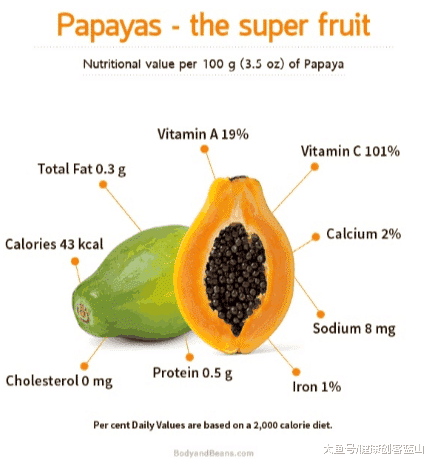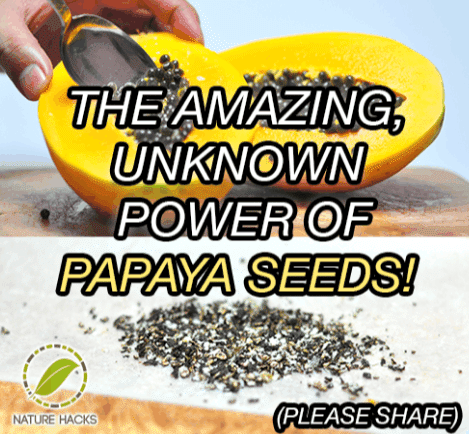佛罗里达大学 木瓜提取物在实验室测试中阻碍癌细胞的生长
Papaya extract thwarts growth of cancer cells in lab tests
佛罗里达大学:木瓜提取物在实验室测试中阻碍癌细胞的生长
简介: 番木瓜提取物在培养过程中似乎对癌细胞有毒性作用,这暗示了一种潜在的治疗方法。科学家首次证明,木瓜叶提取物可以促进关键信号分子th1型细胞因子的产生。这种对免疫系统的调节,以及木瓜对各种癌症的直接抗肿瘤作用,提示了利用免疫系统对抗癌症的可能治疗策略。
佛罗里达大学:木瓜提取物在实验室测试中阻碍癌细胞的生长
完整的故事
木瓜。这种不起眼的番木瓜在西医中因其抗癌功效而赢得了人们的信赖,这是民间文化世世代代公认的。
这种不起眼的番木瓜在西医中因其抗癌功效而赢得了人们的信赖,这是民间文化世世代代公认的。
佛罗里达大学研究员南党,医学博士在日本,博士和他的同事们记录了番木瓜对许多实验室生长的肿瘤的巨大抗癌作用,包括宫颈癌、乳腺癌、肝癌、肺癌和胰腺癌。研究人员使用了一种由干木瓜树叶制成的提取物,当细胞接受大剂量的茶时,抗癌效果更强。
在2月17日出版的《民族药理学杂志》(Journal of ethnic opharmacology)上发表的一篇论文中,Dang和他的同事们也第一次证明了番木瓜叶提取物可以促进被称为th1型细胞因子的关键信号分子的产生。这种对免疫系统的调节,以及木瓜对各种癌症的直接抗肿瘤作用,提示了利用免疫系统对抗癌症的可能治疗策略。
木瓜提取物对正常细胞没有任何毒性作用,避免了许多癌症治疗方案的共同和破坏性后果。唐教授是一名医学教授,也是UF Shands癌症中心临床试验办公室的医学主任。
“根据我在临床的所见所闻,没有人服用这种提取物会有明显的毒性;看起来你可以服用很长时间——只要它有效,”他说。
佛罗里达大学:木瓜提取物在实验室测试中阻碍癌细胞的生长
研究人员将10种不同类型的癌细胞培养置于四种强力番木瓜叶提取物中,并在24小时后测量其效果。在所有的培养基中,木瓜都能减缓肿瘤的生长。
为了确定木瓜抑制培养基生长的机制,研究小组将重点放在T淋巴瘤的细胞系上。他们的研究结果表明,至少一种木瓜提取物的作用机制是诱导细胞死亡。
在类似的分析中,研究小组还观察了木瓜提取物对抗肿瘤分子细胞因子的产生的影响。研究表明,木瓜可以促进th1型细胞因子的产生,而th1型细胞因子在调节免疫系统中起着重要作用。由于这个原因,研究结果提高了在免疫相关疾病如炎症、自身免疫疾病和某些癌症中使用木瓜提取物成分的可能性。
巴拉特·B·阿加瓦尔博士是位于休斯顿的德克萨斯大学安德森癌症中心的研究员,他已经对木瓜的恢复性功效深信不疑,以至于每天都会吃一份。
“我们一直都知道木瓜里面有很多有趣的东西,”该中心实验治疗学系教授阿加瓦尔(Aggarwal)说,他没有参与UF的研究。在木瓜的健康促进剂中,最重要的是木瓜蛋白酶,它是木瓜的标志性酶,在水果和树叶中都有发现。
“这篇论文并没有花太多精力去识别负责这项活动的组件,这很好。”我认为这是一个良好的开端。
Aggarwal还指出,木瓜提取物在实验室细胞培养中降低癌症的成功,下一步必须在动物和人类研究中复制。
“我希望邓博士能更进一步,因为我认为我们需要像他这样有热情的人来推动它,”阿加瓦尔说。
党和一个同事已经通过东京大学申请了提取木瓜提取物的专利;研究的下一步是鉴定木瓜提取物中对癌细胞系有活性的特定化合物。在这个阶段,Dang与Hendrik Luesch博士合作,他是UF Shands癌症中心的成员,同时也是医学化学教授。Luesch是鉴定和合成药用天然产物的专家,最近发现了一种珊瑚礁化合物,可以抑制癌细胞在细胞系中的生长。
故事来源:
材料由佛罗里达大学提供。注意:内容可以根据样式和长度进行编辑。
Papaya extract thwarts growth of cancer cells in lab tests
Date:
March 10, 2010
Source:
University of Florida
Summary:
Papaya extract seems to have a toxic effect on cancer cells in culture, suggesting a potential treatment. Scientists documented for the first time that papaya leaf extract boosts the production of key signaling molecules called Th1-type cytokines. This regulation of the immune system, in addition to papaya's direct anti-tumor effect on various cancers, suggests possible therapeutic strategies that use the immune system to fight cancers.
Share:
FULL STORY
Papaya. The humble papaya is gaining credibility in Western medicine for anticancer powers that folk cultures have recognized for generations.
Credit: iStockphoto
The humble papaya is gaining credibility in Western medicine for anticancer powers that folk cultures have recognized for generations.
University of Florida researcher Nam Dang, M.D., Ph.D., and colleagues in Japan have documented papaya's dramatic anticancer effect against a broad range of lab-grown tumors, including cancers of the cervix, breast, liver, lung and pancreas. The researchers used an extract made from dried papaya leaves, and the anticancer effects were stronger when cells received larger doses of the tea.
In a paper published in the Feb. 17 issue of the Journal of Ethnopharmacology, Dang and his colleagues also documented for the first time that papaya leaf extract boosts the production of key signaling molecules called Th1-type cytokines. This regulation of the immune system, in addition to papaya's direct antitumor effect on various cancers, suggests possible therapeutic strategies that use the immune system to fight cancers.
The papaya extract did not have any toxic effects on normal cells, avoiding a common and devastating consequence of many cancer therapy regimens. The success of the papaya extract in acting on cancer without toxicity is consistent with reports from indigenous populations in Australia and his native Vietnam, said Dang, a professor of medicine and medical director of the UF Shands Cancer Center Clinical Trials Office.
"Based on what I have seen and heard in a clinical setting, nobody who takes this extract experiences demonstrable toxicity; it seems like you could take it for a long time -- as long as it is effective," he said.
Researchers exposed 10 different types of cancer cell cultures to four strengths of papaya leaf extract and measured the effect after 24 hours. Papaya slowed the growth of tumors in all the cultures.
To identify the mechanism by which papaya checked the growth of the cultures, the team focused on a cell line for T lymphoma. Their results suggested that at least one of the mechanisms employed by the papaya extract is inducing cell death.
In a similar analysis, the team also looked at the effect of papaya extract on the production of antitumor molecules known as cytokines. Papaya was shown to promote the production of Th1-type cytokines, important in the regulation of the immune system. For that reason, the study findings raise the possibility of future use of papaya extract components in immune-related conditions such as inflammation, autoimmune disease and some cancers.
Bharat B. Aggarwal, Ph.D., a researcher at the University of Texas M.D. Anderson Cancer Center in Houston, already is so convinced of papaya's restorative powers that he has a serving of the fruit every day.
"We have always known that papaya has a lot of interesting things in there," said Aggarwal, a professor in the center's department of experimental therapeutics who was not involved in the UF research. Foremost among papaya's health-promoting agents is papain, papaya's signature enzyme, which is found in both the fruit and the leaves.
"This paper has not gone too much into identifying the components responsible for the activity, which is just fine. I think that is a good beginning," Aggarwal said.
Aggarwal also noted that papaya extract's success in reducing cancer in laboratory cell cultures must next be replicated in animal and human studies.
"I hope Dr. Dang takes it further, because I think we need enthusiastic people like him to move it forward," Aggarwal said.
Dang and a colleague have applied to patent the process to distill the papaya extract through the University of Tokyo; the next step in the research is to identify the specific compounds in the papaya extract active against the cancer cell lines. For this stage, Dang has partnered with Hendrik Luesch, Ph.D., a fellow UF Shands Cancer Center member and a professor of medicinal chemistry. Luesch is an expert in the identification and synthesis of natural products for medicinal purposes, and recently discovered a coral reef compound that inhibits cancer cell growth in cell lines.
Story Source:
Materials provided by University of Florida. Note: Content may be edited for style and length.
.png)


.png)